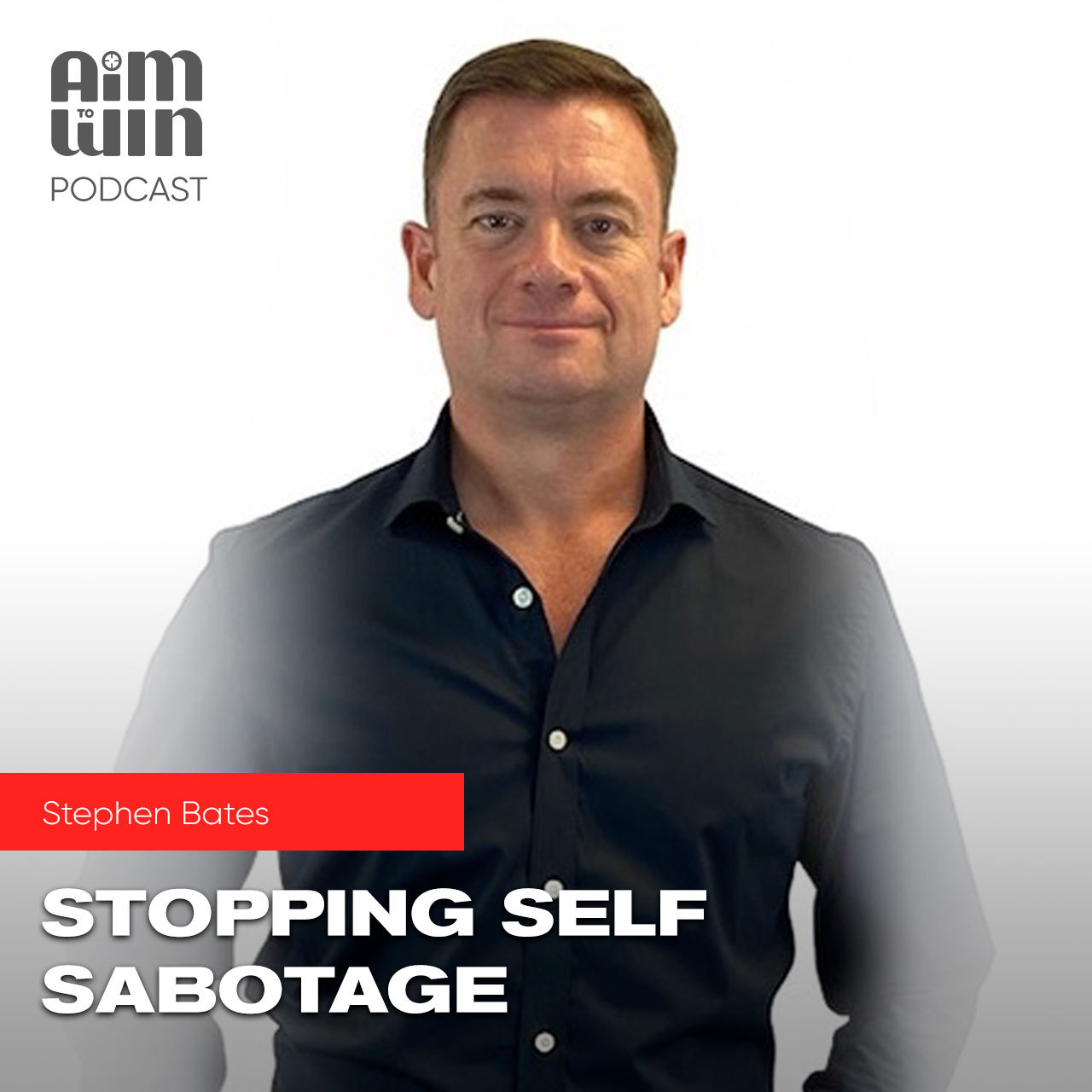Listen to the episode right here.
Stephen Bates is a British business coach that specialises in helping Entrepreneurs and Business People who know they and their teams are underperforming.
Stephen has spent the last 28 years looking at why 40% of people sabotage themselves both in their personal lives, and also in business.
In 2002, he founded Certain Change Ltd where he now specialises in two core topics.
1) Stopping Entrepreneurs self-sabotage.
2) Helping them develop their Leadership & Management skills which can extend into their Senior Management teams when working with big organisations.
His main mission is to help people achieve tangible results by understanding their own thinking and behaviours and that of their team, the people they employ and their customers.
Changing Behaviours To Create Better Results, Fixing Imposter Syndrome & Confidence Problems and Developing Influential and Effective Leaders is the objective of Stephen’s unique methodology .
Stephen has helped thousands of clients across the globe. He is the creator of the Alpha Programme, the Certain Change Programme and Co-Founder of Tech Leaders.
Podcast Highlights
Who is Stephen Bates?
Stephen started his first physical therapy business at the age of 26, but it turned out that instead of a business he created a job for himself. Things went well for a while and he quickly learned that the people he was coaching during sessions did significantly better than the people that ignored the advice. That’s where his fascination with behavior began.
If people won’t do what’s good for them when they are in acute physical pain, they do it in all areas of their life. When Stephen was five-years-old, he had a traumatic experience while in school which resulted in him becoming ultra protective of being singled out. This prevented him from marketing his business in adulthood until he connected the dots.
Self Sabotage
90% of self-sabotaging behavior in business, including impostor syndrome, has its root in some sort of childhood trauma. We have natural protective mechanisms built into us from evolution, but those systems and experiences became a habit of protecting our self worth in the modern world.
The three main ways we self-sabotage: we underprice ourselves, under promote ourselves, and not working towards the goals we should be. This causes us to hold back from sharing our thoughts and play small.
As a leader, if your employees are holding back, you won’t get the feedback and ideas you would get from employees with more confidence. Leaders also hold a conceptual place in society where it’s hard to admit that you’re getting in your own way and may need help.
Most people undersize their goals because setting a goal often wakes up the sabotage loop where the protective, and undermining, side of your mind tries to convince you that you’ll fail. It’s not deliberately damaging, but that’s usually the result. You need to find the reason that you excessively doubt your goals.
How do you help people overcome self-sabotage?
Most of Stephen’s clients have a thirty to fifty step process in their head that is “protecting” them from their goals. He helps them identify the reason that they feel that way. Once they can see the underlying reasons for their inner monologue, they can choose better options and then they can take that and apply it to new situations.
How can a leader get the best out of their team?
People are unique and they all think differently, but there is a framework for understanding their motivations. There are only two strategies for being motivated, negatively or positively. When you understand why people make their decisions, you can lead them in a way that motivates them.
Confidence to Market Yourself
People think they need to build confidence, but we lose it when we need to. Rather than building your confidence in all situations, it’s more important to understand the reason that you are turning your confidence off inappropriately. Don’t do motivational affirmations to get yourself to take action, get angry and frustrated with your own inaction. Don’t be angry forever, but get annoyed enough to just take action and do something. Once you stop the protective mechanism that is holding you back you can dismantle it.
We spend a lot of time trying to control our emotions. This can look like spending a lot of time watching Netflix, excessively drinking, and meditating. If you change your thinking, your emotions will change as a result. The question is are you obsessively thinking about the right thing or the wrong thing? Change your thinking and your emotions will follow.
Links:
Website: https://www.certainchange.co.uk
LinkedIn: https://www.linkedin.com/in/stephenbatesuk/
Facebook: https://www.facebook.com/stephenbates.uk/
Youtube: https://www.youtube.com/channel/UC82ZvWv5Dfxt3guOawUqU9Q

